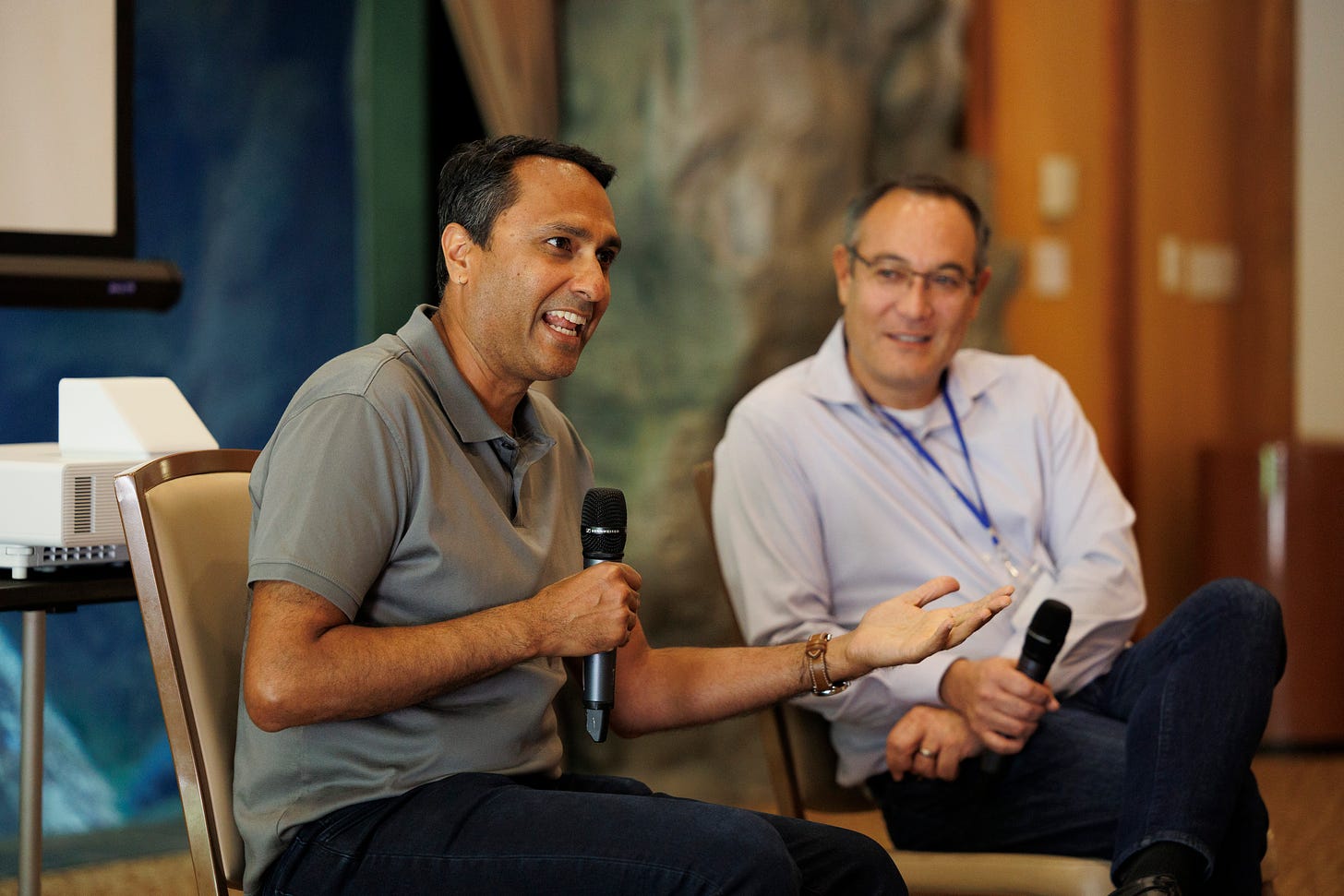Encouraging and Equipping Christian Faculty at Non-Christian Universities
Field notes from our second cohort of the Newbigin Fellows
In an earlier post, I described the Newbigin Fellows, a partnership between Interfaith America (where I serve as a Senior Fellow) and The Carver Project (an organization I founded five years ago). The Newbigin Fellows convenes cohorts of Christian faculty working at non-Christian colleges and universities. These cohorts meet monthly over Zoom and then gather in person with the goal of cultivating relationships with one another, reflecting on the theory and practice of interfaith engagement, and developing interfaith activities on their respective campuses. I co-lead the group with Interfaith America’s founder and president, Eboo Patel.
Last week, our second Newbigin cohort gathered in St. Louis. Our fellows span various fields of expertise and work at leading institutions throughout the country:
Franciska Coleman, Law, University of Wisconsin
Catherine Crouch, Physics, Swarthmore College
Patrick Frierson, Philosophy, Whitman College
Sara Hendren, Design, Northeastern University
Jimmy Kim, Education, Harvard University
Austin Knuppe, Political Science, Utah State University
Bharat Ranganathan, Religion, University of Nebraska (Omaha)
Dave Vosburg, Chemistry, Harvey Mudd College
Molly Worthen, Religious History, University of North Carolina (Chapel Hill)
Our time together included substantive conversations about the state of politics and religion in our country, the recent campus protests, and the challenges and opportunities of being a Christian faculty member on campuses like ours. We also hosted a public panel on Christian women in the sciences that featured Newbigin Fellow Catherine Crouch and my Washington University Carver Project faculty colleagues, Jen Heemstra (Chemistry) and Kristin Van Engen (Linguistics).
Our Newbigin gathering coincided with the publication of the latest issue of Plough Quarterly, which includes a piece from me titled “Loving the University.” I begin that piece by noting:
One of the central motivations of my academic career has been to ask how Christians can flourish in nonreligious colleges and universities. I would like to think that Christians can actually model some of what the university purports to be.
I argue that Christian faculty at non-Christian universities—like the Newbigin Fellows—can help achieve the university’s goals of interdisciplinarity, student engagement, and town-gown relations. Many higher education institutions today struggle to name and embody a clear purpose and mission. This lack of clarity creates enormous challenges but also invites opportunities for faculty to lead creatively and imaginatively.
My Plough article describes how the Carver Project seeks to be a faithful presence that partners with the university to advance common efforts. Our work depends on learning the university’s language and culture, building together, and taking risks. I conclude by noting:
I hope that more Christians will come to see the good in non-Christian higher education instead of fixating on its dangers and imperfections. These institutions will never feel like home: the days of Christian mottos centering the nation’s most elite colleges are over; the baccalaureate ceremony is a dying relic at most institutions; and in most cases, the most elite schools can no longer name their purpose at all. They are rich, powerful, and for the most part, listless. But when Christians show up to be part of them—by learning the language and culture, by partnering together in the work at hand, and by taking risks—the Lord can do amazing things.
Our recent gathering of the Newbigin Fellows is one example of Christian faculty can work toward these ends even as they partner with—and learn from—colleagues and students from other traditions.







